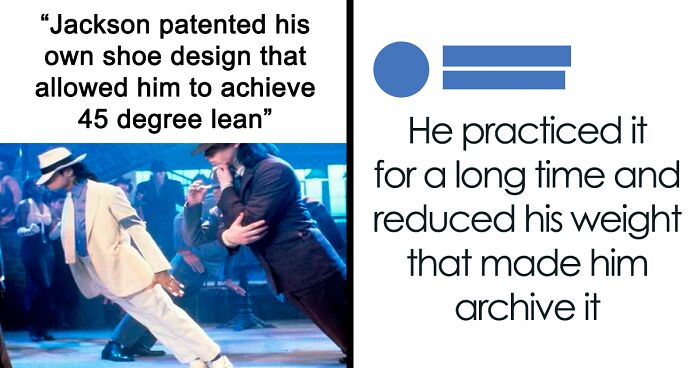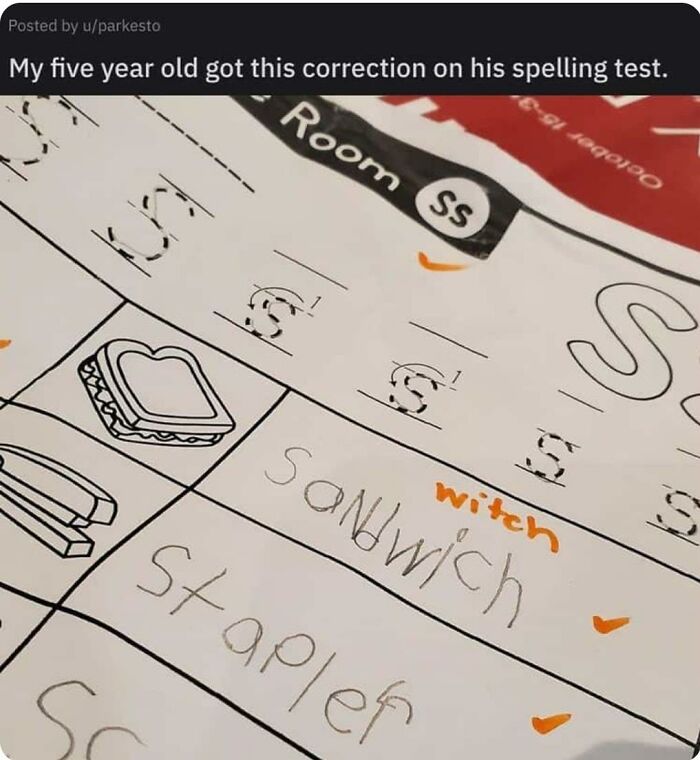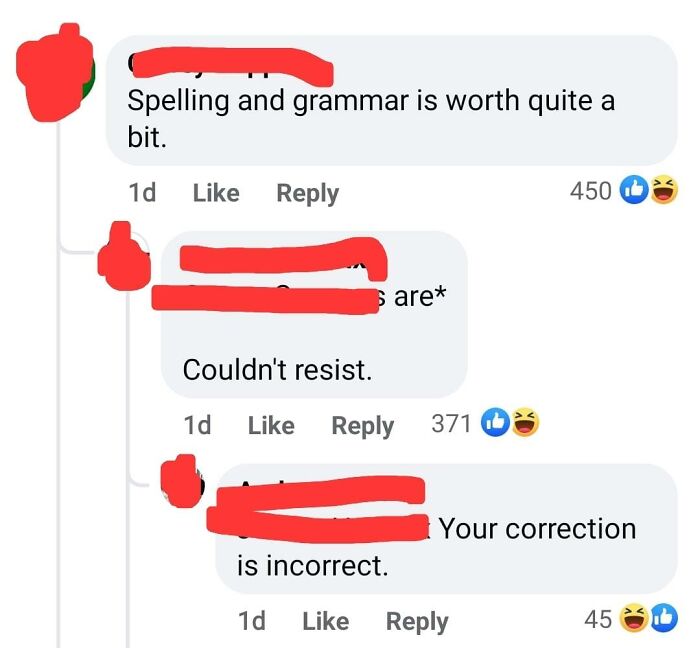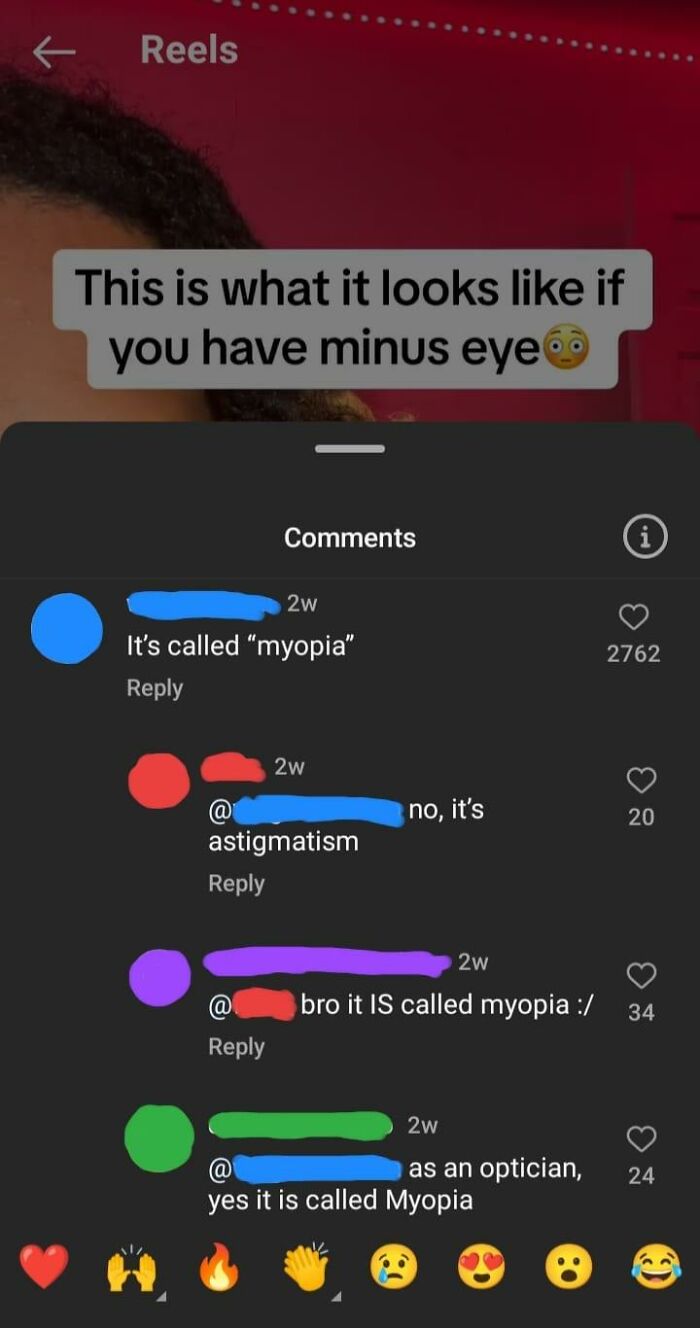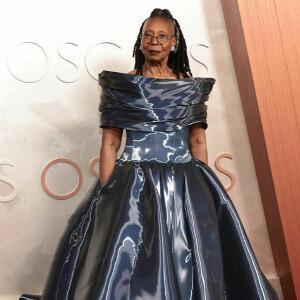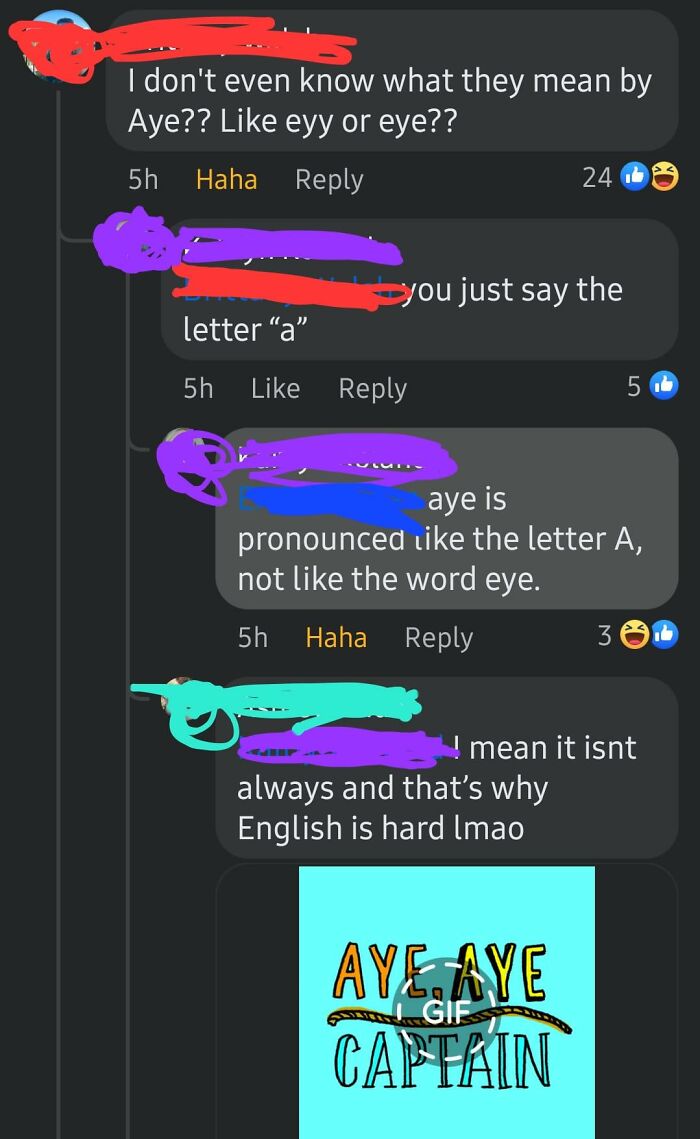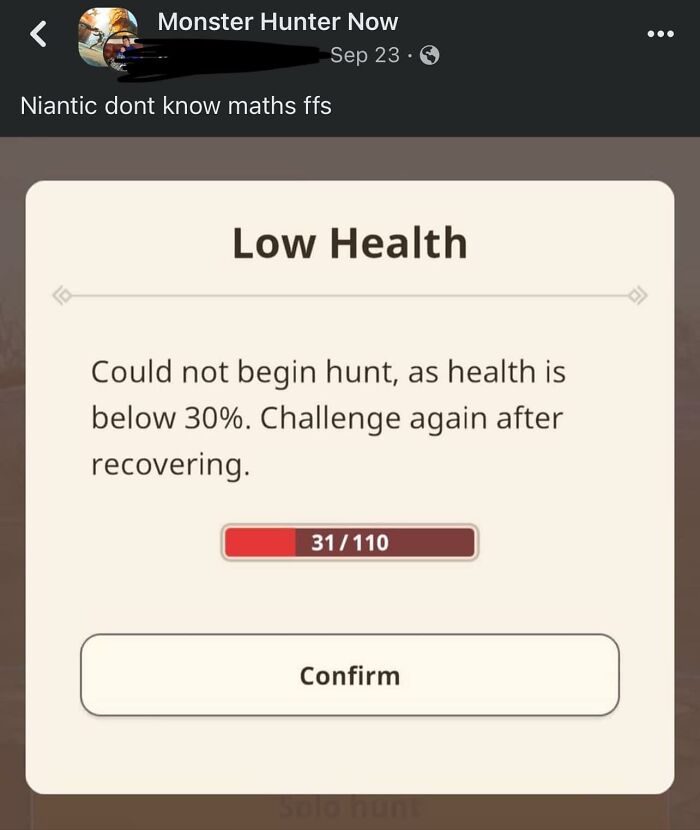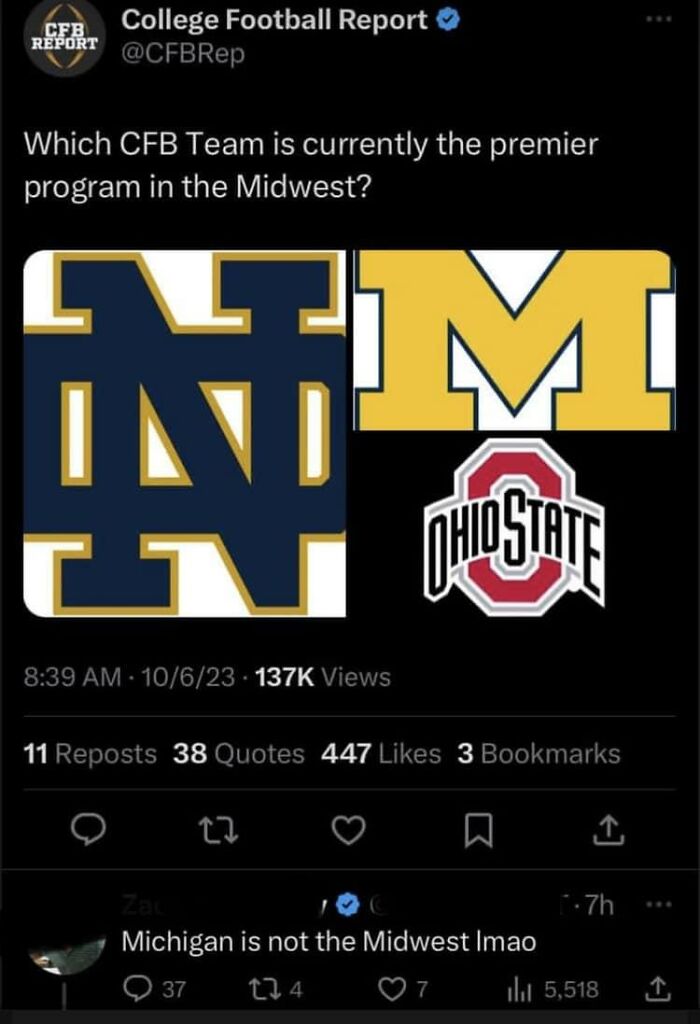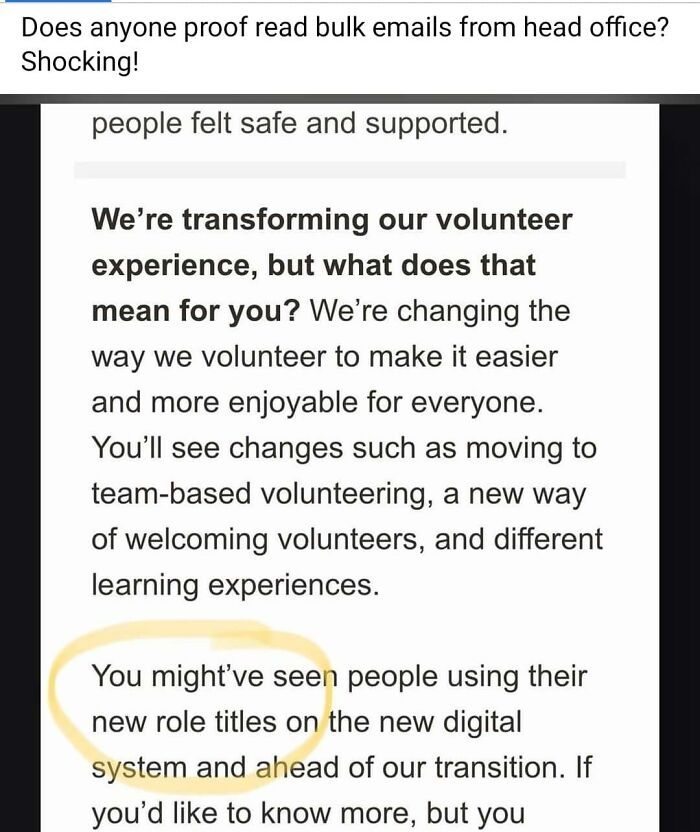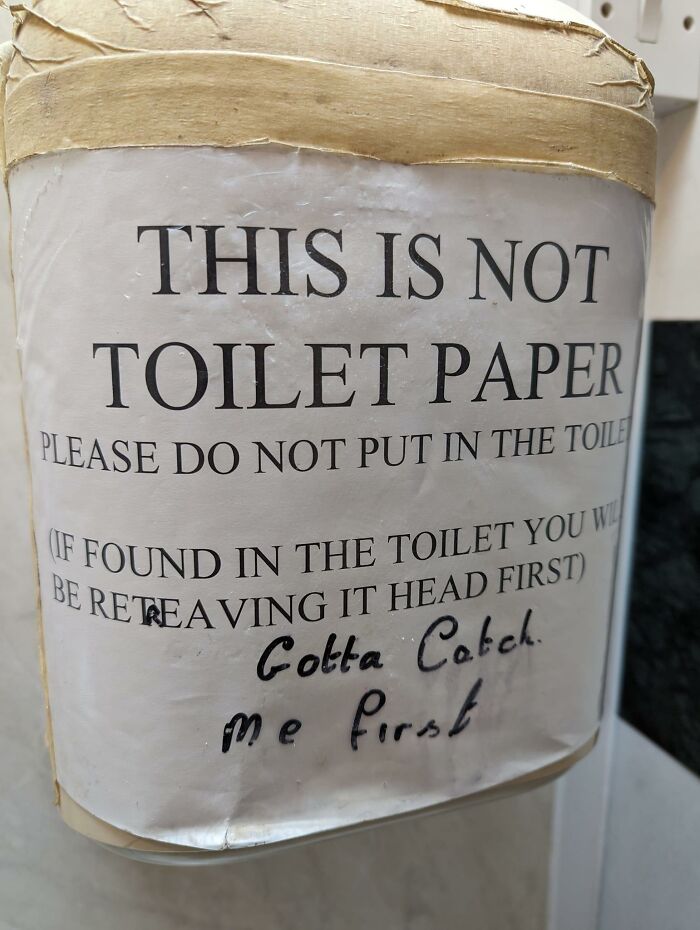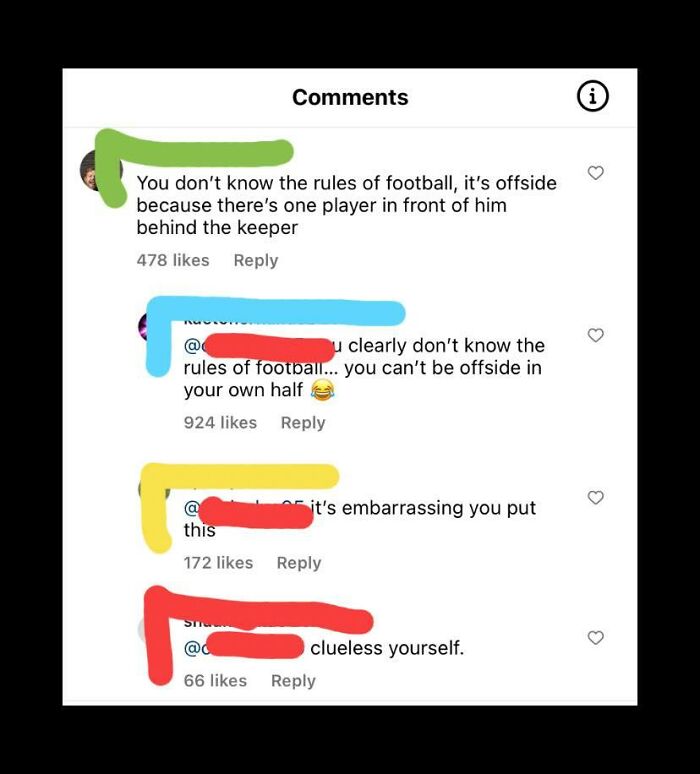Those who are insecure often project their supposed superiority in a variety of ways. One of the most popular ones is pointing out others' mistakes. However, sometimes the fact-checkers rely too much on their emotions and too little on the truth.
There's a Facebook group called 'People Incorrectly Correcting Other People' and it's full of humorous reminders that you need to be absolutely certain of what you're about to say when you're getting ready to bask someone, or else you're going to make a fool of yourself.
From folks who can't tell the time to grammar gurus stumbling on their own words, here are some of the most popular recent posts that were shared by the online community.
This post may include affiliate links.
Oh dear. Every day I have to remind myself some people really are that dumb
When people disagree on an issue, there are several possible routes they can take. Some might avoid it altogether (either by putting off the discussion or just agreeing with the other person in order to end the conversation). But, as you see in the pictures, it's not for everyone — others believe they need to actively resolve the matter.
In that case, they have a choice between being competitive or cooperative.
"Cooperative resolution means that people are seeking some kind of middle ground," explains Art Markman, Ph.D., and Annabel Irion Worsham Centennial Professor of Psychology and Marketing at the University of Texas at Austin. "Competitive resolution means that people are trying to convince the other person to change their belief."
This is one of those "bible is good enough for me" soccer moms, guaranteed.
Many factors lead people to take a cooperative or competitive stance when dealing with a disagreement. For instance, the personality characteristic of openness reflects how willing we are to consider new ideas, and people high in openness are more likely to be cooperative than those who are low in openness.
The characteristic of agreeableness reflects how much people want to get along with others — agreeable people are also more likely to seek a compromise than disagreeable people.
Markman also suggests a paper by Kimberly Rios, Kenneth DeMarree, and Johnathan Statzer in the July 2014 issue of Personality and Social Psychology Bulletin to better understand what affects our tendency to be cooperative or competitive.
Turns out, people's certainty about their beliefs can be broken down into two components: clarity and correctness. Clarity determines if we are sure about what we believe. Each of us has some beliefs that we hold deeply and others to which we are not as firmly attached. Correctness focuses on whether we think our belief is 'correct' in some broader cultural context or not.
The authors suggested that the more strongly people believe their attitude is correct, the more competitive they will be in their discussions with others. (Interestingly, they did not assume that clarity would be as strongly related to competitiveness.)
"Being certain of your attitude can affect whether you try to convince other people that you are right," Markman writes. "In particular, the more strongly you believe that your attitude is the right one, the more you will focus on convincing others."
"That also means that if you find yourself in conflict with others on a regular basis, you might want to evaluate whether you generally assume that your attitudes are the correct ones."
Manners mentor Maralee McKee finds it sad that sometimes, when people speak, their words seem more spit out than thought out.
"Stories abound, and it has happened to me, about being called out in person in front of family members, coworkers, friends, and anybody and everybody else for minor things, from incorrectly quoting a movie line, to saying something happened on a Tuesday when it occurred on a Wednesday, to getting the name wrong of the restaurant an incident occurred in while telling a great story," she says.
But even if you're skinny your weight is still distributed fairly evenly around your body
The first time I came across the word 'edible' I had no idea what it could mean. I know it's a correct word, but it's totally illogical imo
According to McKee, even if the 'correctors,' 'nit-pickers,' and 'accusers' are right, correcting others over small things is rarely called for, it seldom wins anyone friends, and on the rare occasion when it is called for, it's tricky to accomplish politely.
For more people incorrectly correcting other people, fire up our older publications on the Facebook group, called 50 People That Had More Courage Than Brains To Go Incorrectly Correcting Someone and 45 Painfully Cringe Moments When People Thought They Knew Better, But Embarrassed Themselves Instead.
Which is correct sulphur or sulfur? Sulfur has been the preferred spelling of the International Union of Pure and Applied Chemistry (IUPAC) since 1990, and is the default form employed by many scientific journals 1. The alternative spelling sulphur may still be found in common use in the UK and Commonwealth, especially by laypeople.Mar 15, 2019
four is germanic. Colour is latin. The "u" was artificially introduced to make consistency with french spelling (french descends from latin). Original old english for four was "feower".
I use these differently even though we supposedly use UK english here. I use mold for the fungus and mould for shaping-something (verb or noun). I do the same with disc/disk and program/programme. I use disc = a circle, disk = a computer disk; and program = verb, to make a computer do something; programme = series of in-person/person-attended events , e.g. wedding programme.
Yeah nah, this does not belong here - but it's absolutely hilarious🤣🤣🤣
“Spelling and Grammar” would be replaced by the pronoun they, meaning are is perfectly valid.
Reminds me of the time I saw a YouTube skit where someone doesn’t have pronouns at all. They’re referred to only by name and nothing else
That's not Drew Wrong. I went to school with Drew Wrong, and it looks nothing like him.
I was expecting another reply like "My Dear, it's "dear" not "deer"
This one doesn't fit the theme, but it is funny anyway. 😁 (Edit: retrieving)
It stopped getting funny after the first few. Idiocy is terrifying sometimes
One of the most confused pairs of words nowadays is "lie" and "lay". You lie in bed. A chicken lays eggs.
But "I lay in bed yesterday' is correct again, because the past tense of 'lie' is 'lay'.
Load More Replies...It stopped getting funny after the first few. Idiocy is terrifying sometimes
One of the most confused pairs of words nowadays is "lie" and "lay". You lie in bed. A chicken lays eggs.
But "I lay in bed yesterday' is correct again, because the past tense of 'lie' is 'lay'.
Load More Replies...
 Dark Mode
Dark Mode 

 No fees, cancel anytime
No fees, cancel anytime 


